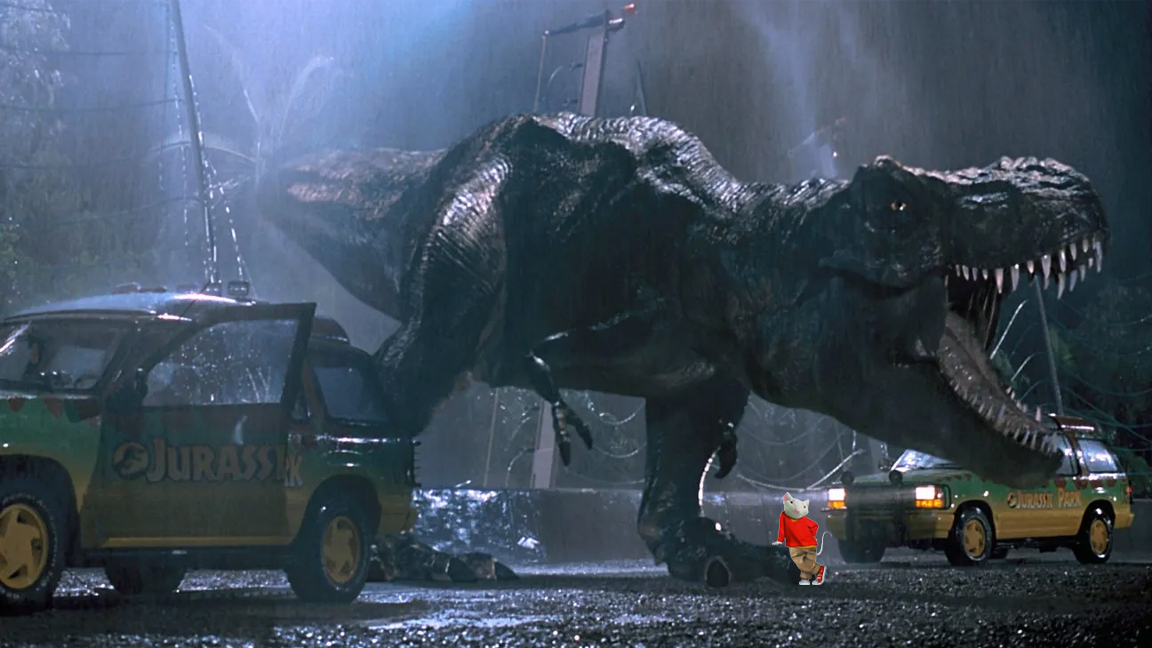
Jump to the quick list↴
1. Films 30-21
2. Films 20-11
3. Films 10-1
The best CG movies of the 90s set new standards and trends for VFX that would be taken up by future filmmakers, just as the best CGI movies of the 80s did previously. The films on my list are not always the best movies, but they pioneered CGI and VFX and so deserve recognition.
If you're inspired by this movies, then read up on some of tools modern VFX artists use in our guides to Houdini, Blender and even Unreal Engine 5, which is becoming a tool for filmmakers. You may need to upgrade your kit, so read our feature on the best laptops for animation and our guide to the best drawing tablets.
I have my personal favourites on the list below, including the VFX work on The Matrix that seems to get better with age and Mars Attacks! that made weird comical aliens an oddball threat. And before we get into the main list, three special mentions…
Best CGI movies of the 80s - honourable mentions
Let's begin here with Road to Perdition, which featured CGI work from Cinesite. Great CG is about selling a scene or a moment, and few have done it as well as Cinesite’s introduction to 1930s Chicago in a 40-second sequence that segues from countryside to an accurately-created city scene. As the protagonists drive along, the camera pans across the windows, glimpses of period cars and reflections of skyscrapers a tease of what’s to come. The camera then sweeps behind the car to reveal an utterly convincing recreation of period Chicago.
Another would be Krrish 3 with VFX work from a number of studios including Pixion and Red Chillies VFX. This 1999 movie, the third in the Bollywood series, tells the tale of reluctant superhero, Krishnan. Red Chillies and Pixion delivered more than 50 VFX sequences, with an array of set extension, digital doubles, CG creatures and character transformations. One shot in which the hero dives from a high bridge took a team of 35 four months to complete.
There's also 1995's Waterworld that comes under a lot of criticism for the massive budget it sucked up, from building a floating atol stage in the ocean to extending a local airport just for delivering scenery and sets. Amidst the film's costly need to shoot a water-based movie on location, in the ocean, there are actually a some interesting CGI moments, including an animated opening sequence that details the melting ice caps, which was the longest CG sequence up to that time.
Best CGI movies of the 90s: 30-21
30. Alien Resurrection
Blue Sky (1997)
This entry in the series embraced CG to bring the creatures to life – with mixed results. While seeing too much of the Aliens can always lessen their fear factor, an underwater sequence modelled on nature footage of crocodiles reminded us all what expert killers Giger’s creations are.

29. Saving Private Ryan
ILM (1998)
The bulk of Steven Spielberg’s WWII epic owes a debt to good old special effects, with explosions, prosthetics, fire and more than 17,000 squibs, so ILM’s task was to take the principal photography and enhance it. Of the 40 such shots, most notable are the sweeping vistas of Omaha beach with a vast fleet of ships, landing craft and blimps. Other, more subtle VFX include bullet hits and augmented blood splats.
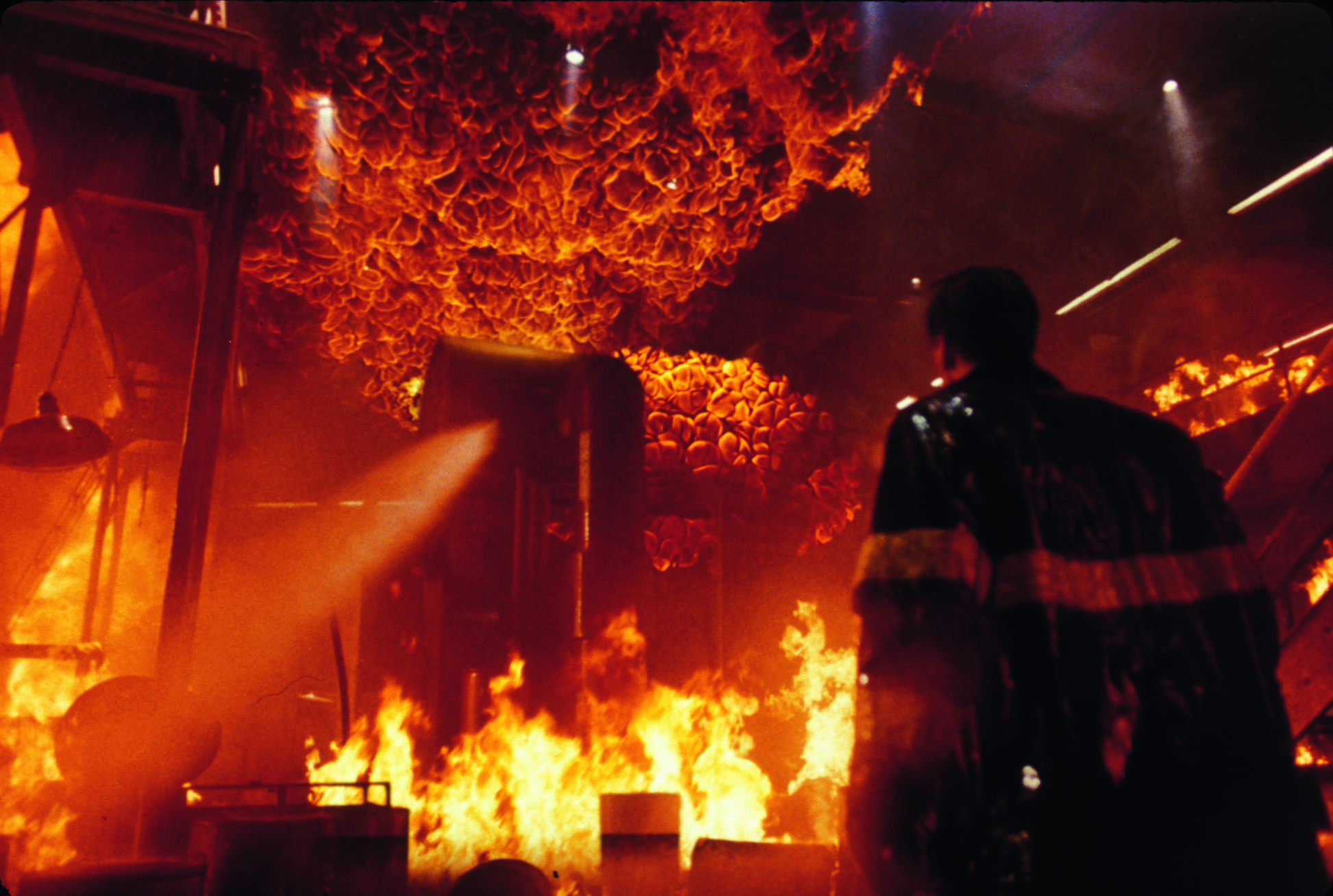
28. Backdraft
ILM (1991)
The tale of two Chicago firefighter brothers was the first film to use photorealistic computer-generated fire, which earned ILM another Oscar nomination for Visual Effects.
27. Armageddon
Dream Quest Images, Digital Domain, various (1998)
Most of Hollywood worked on Michael Bay’s blatant blockbuster, but Armageddon’s $140 million budget was to prove well spent. Dream Quest Images got an Oscar nomination for its effects, including the villain of the piece: the asteroid, which was created using a model covered in particles representing its emitted gases.
26. Contact
Sony Pictures Imageworks, ILM, various (1997)
At the time, the opening sequence of Contact was the longest ever digital effects shot in a movie, and the powers-of-ten sequence still holds its own today. Sequence supervisor and amateur astrologer Jay Redd handled the 199-second, 4,710-frame shot, taking viewers through the known universe into the eye of a small girl.
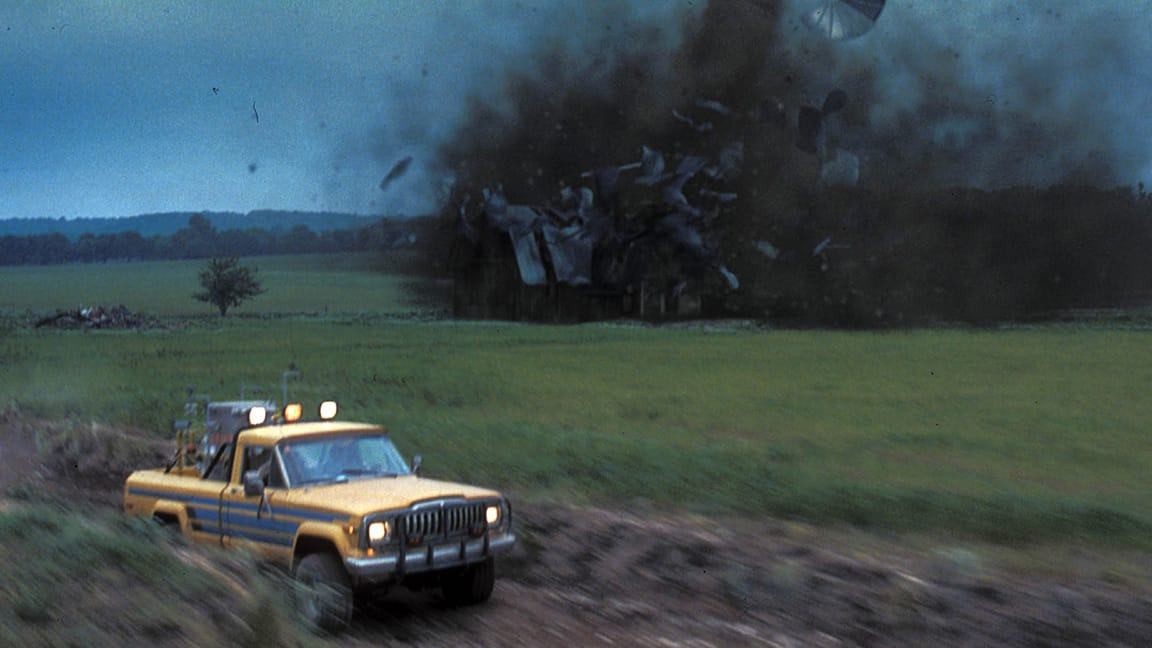
25. Twister
ILM (1996)
Audiences watched in awe as CG cattle and tankers were spat from vicious cyclones in Jan de Bont’s tornado chaser movie. The real star is Mother Nature, as realised by ILM’s proprietary particle software. It lost to Independence Day at the Oscars, but ILM’s hyper- realistic storm simulations still manages to thrill viewers today.
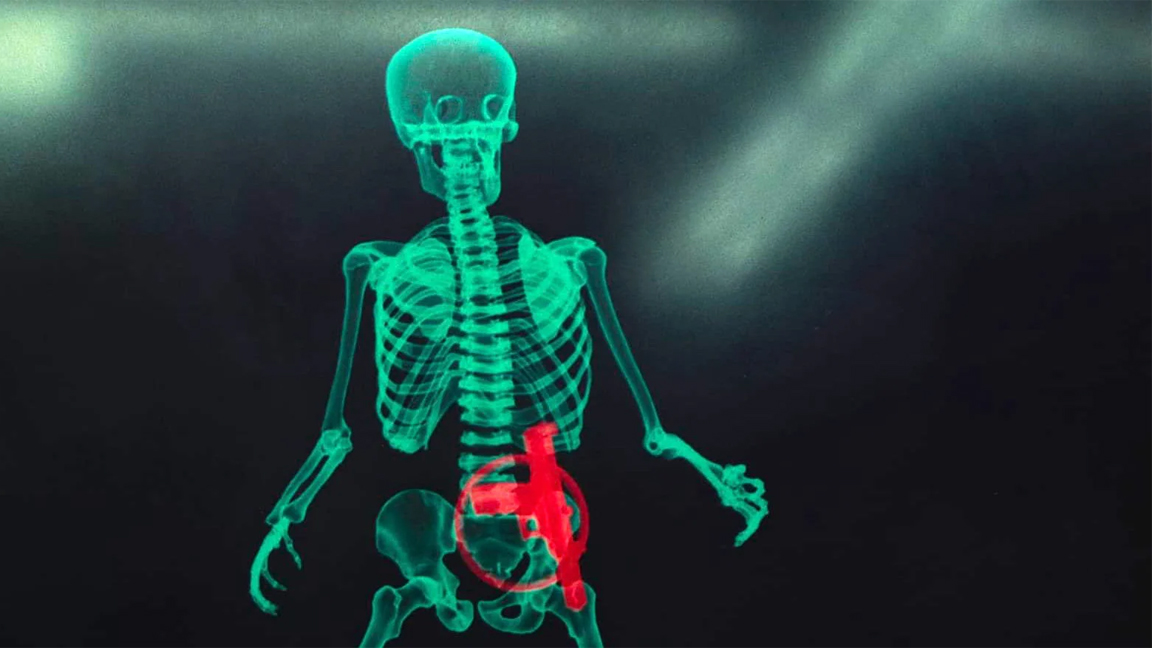
24. Total Recall
MetroLight Studios, various (1990)
Paul Verhoeven’s sci-fi thriller enlisted the help of MetroLight Studios for a handful of digital effects. Tim McGovern’s Oscar-winning X-ray scanner sequence, in which Arnold Schwarzenegger’s character is seen in CG skeleton form, was also one of the earliest uses of motion capture in the cinema.
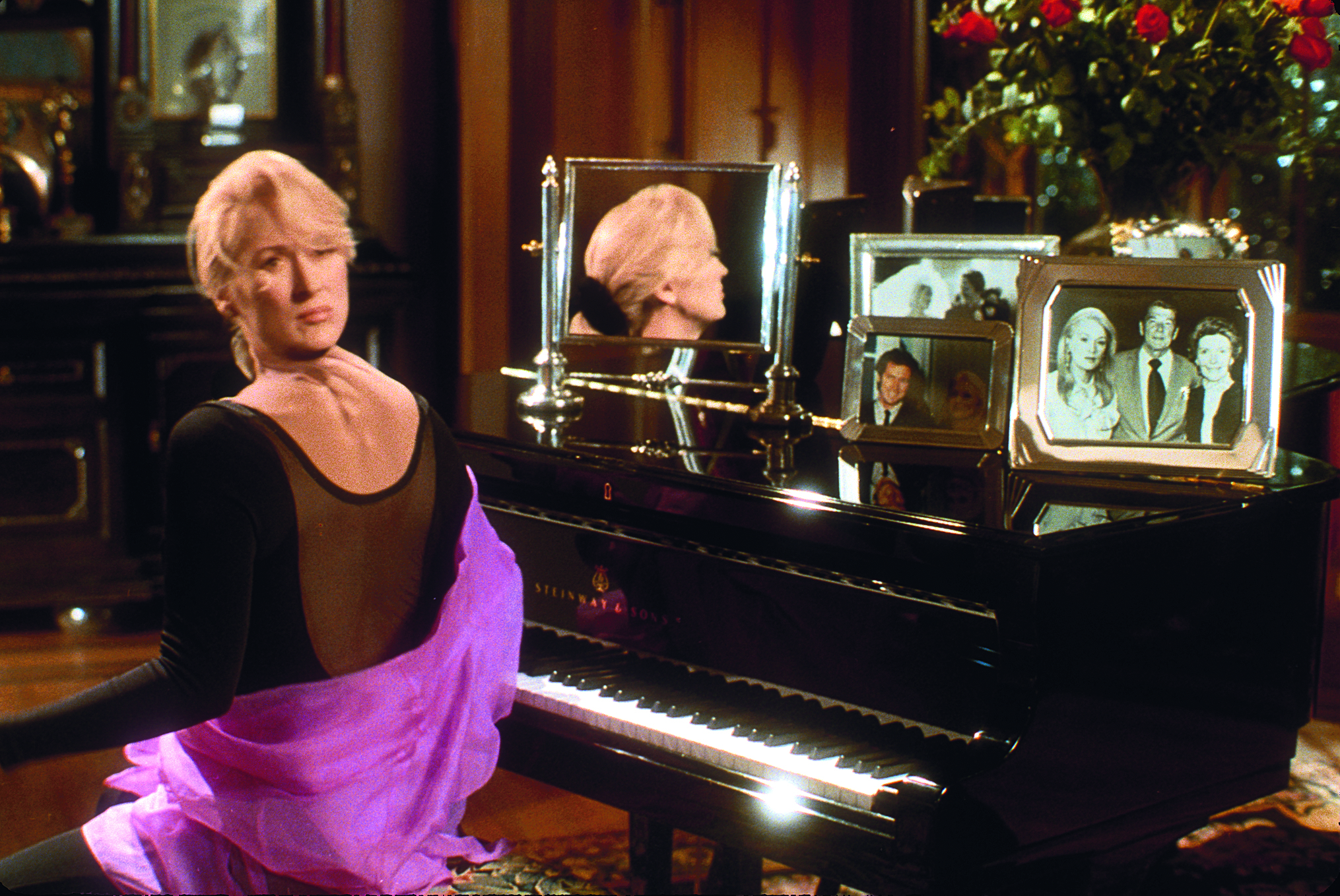
23. Death Becomes Her
ILM (1992)
ILM bagged another Best Visual Effects Oscar for its work on Robert Zemeckis’ black comedy. The film featured the first photorealistic CG human skin, which was used to link Meryl Streep’s body and head (facing the wrong way) together with a stretched, digital neck. More CG-trickery involved a huge shotgun wound in Goldie Hawn’s midriff through which we can see the set behind her. Although only scripted for 40 VFX shots, the film ended up with 170 – 80 of which were accomplished using ILM’s nascent CG technology for a variety of digital retouching and shots of a stormy 1978 New York.
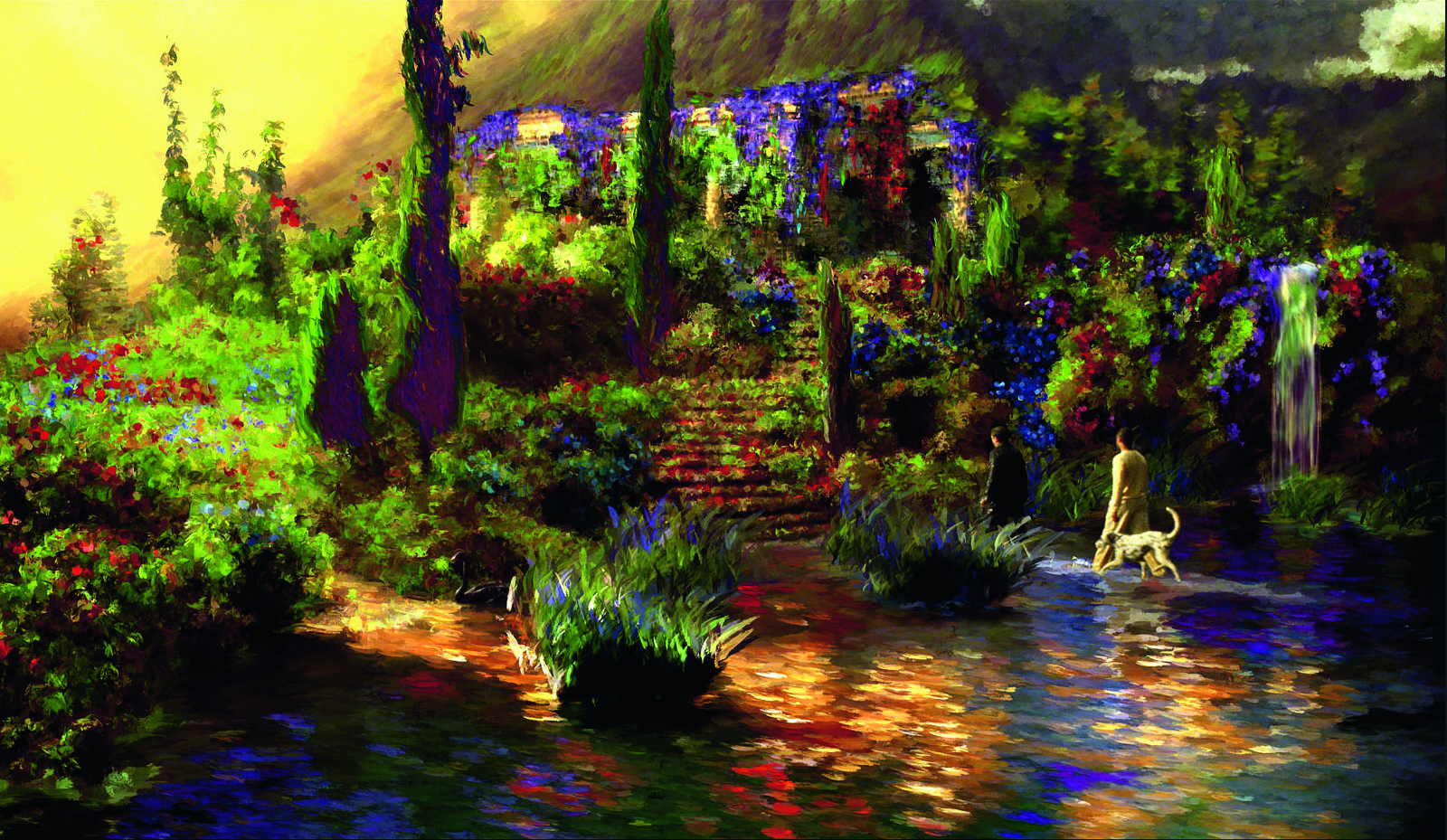
22. What Dreams May Come
Mass.Illusions, Digital Domain, various (1998)
Lush and vibrant in appearance, Vincent Ward’s Oscar-winning vision of heaven looks unlike almost any other modern 3D-enhanced movie. Scenes of a shifting, painterly afterlife were the result of a collaboration between a number of VFX houses, including Mass.Illusions, Digital Domain, Pacific Ocean Post, Giant Killer Robots, Mobility and Shadowcaster.
The beautifully colourful backdrops that resemble moving impressionist paintings, were created by the use of LIDAR (Light Detection and Ranging) to scan an entire location and recreate it as a point cloud in the computer. A process called optical flow was then used to generate the moving scenery. This groundbreaking work earned the movie an Oscar for best visual effects.
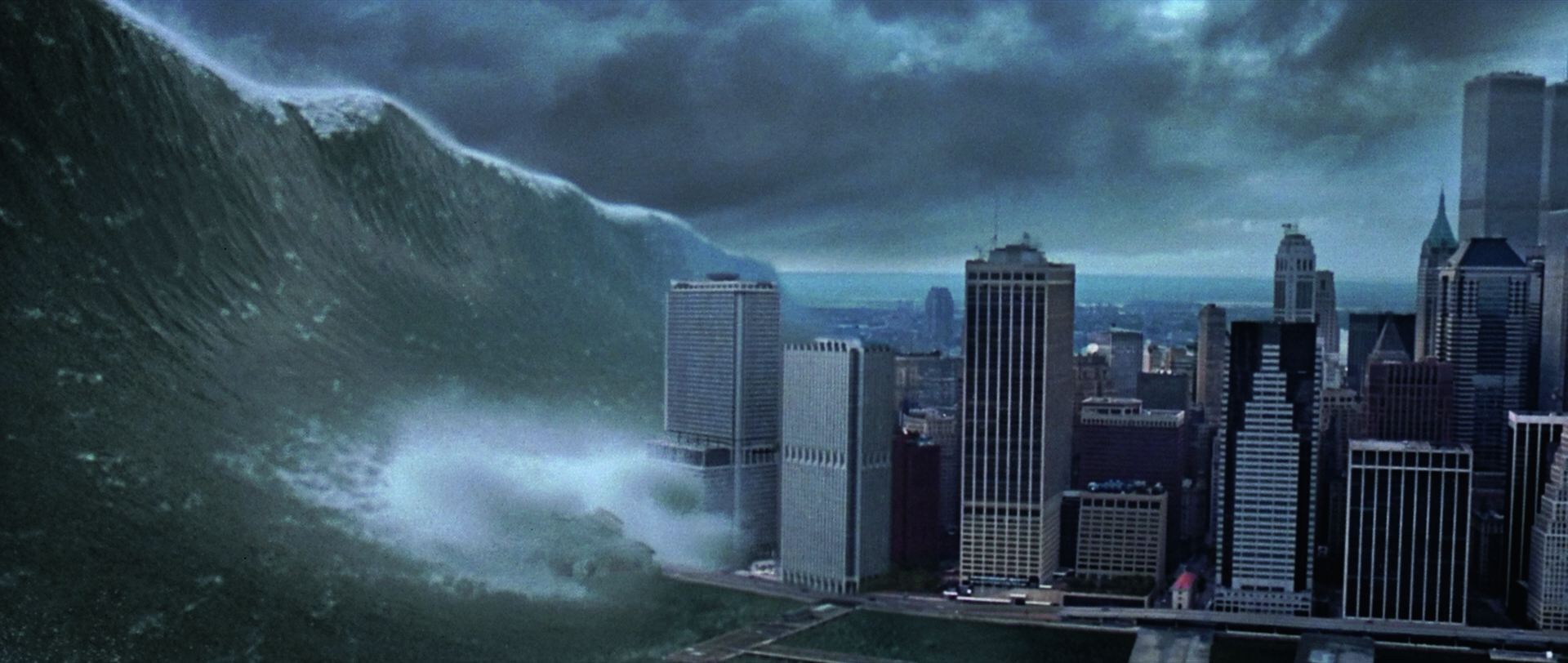
21. Deep Impact
ILM, Pacific Title, CIS Hollywood (1998)
For Mimi Leder’s slushy extinction-level event flick, ILM was drafted in to visualise a giant meteor wreaking devastation on the US eastern seaboard. When a mission to destroy the meteor fails, we’re treated to the impact itself, which results in a kilometre-high wall of CG water which destroys New York. Although these early water sims are somewhat ‘fluffy’, the sequence still stands up well. Shots of the tsunami moving inland required careful matchmoving of live action crowds.
Best CGI movies of the 90s: 30-29
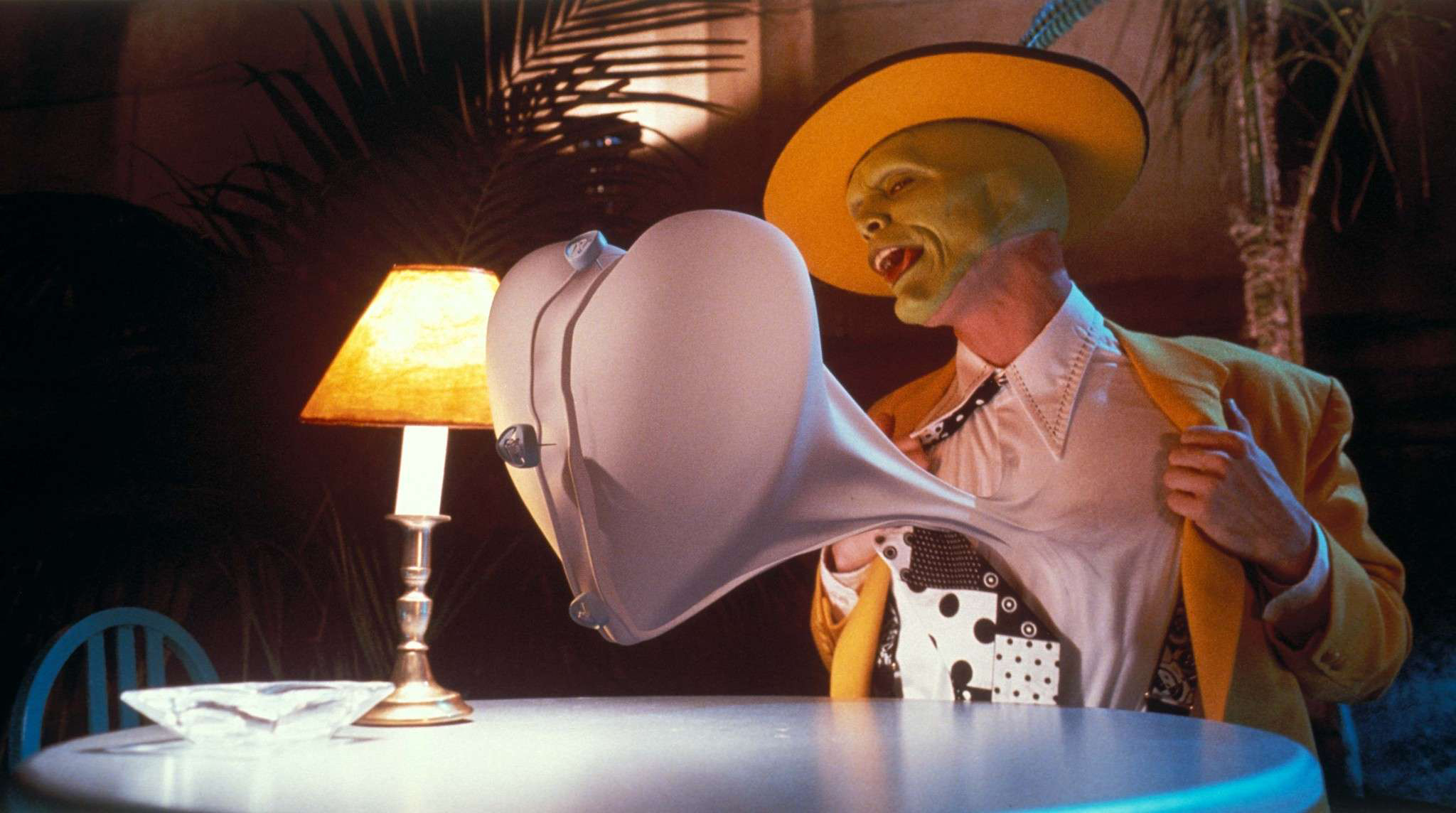
20. The Mask
ILM (1994)
When bank clerk Stanley Ipkiss dons the mask of Loki, god of mischief, he’s transformed into his wild-man alter-ego. Inspired by Tex Avery cartoons of the 1940s, ILM had to painstakingly blend Jim Carrey’s live-action antics with CG caricatures, with some shots taking as long as four weeks to animate by hand.
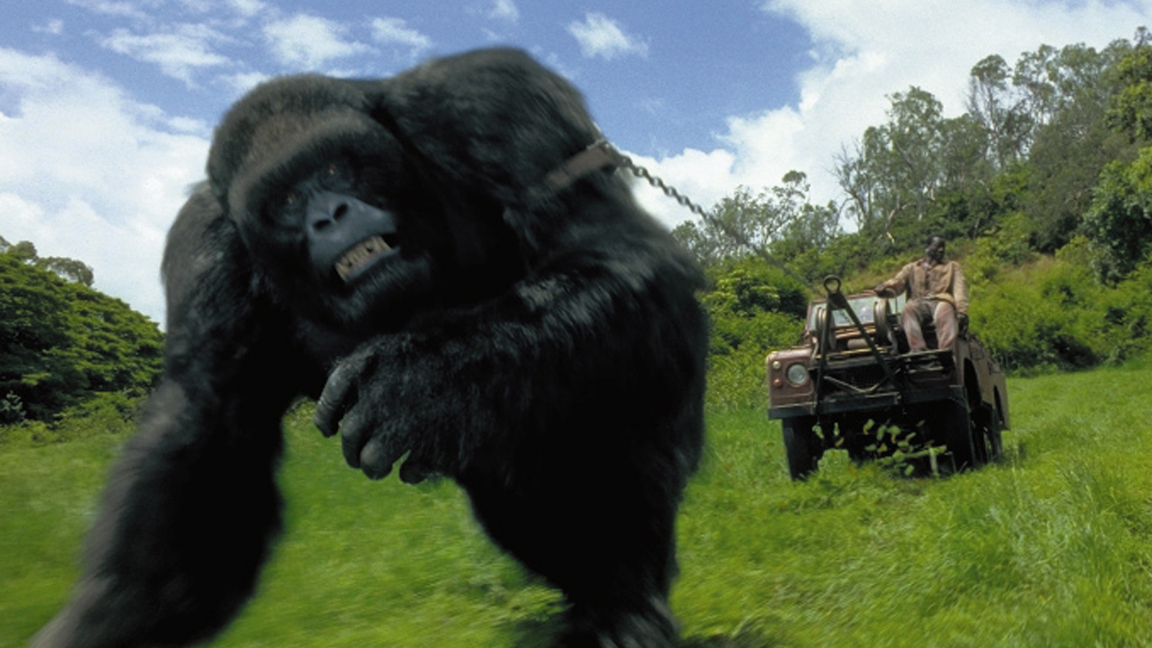
19. Mighty Joe Young
ILM, Dream Quest, Matte World Digital (1998)
A remake of the 1949 movie of the same name featuring a giant ape at large crushing cars and scaling buildings may not have been the most original movie but it ushered in a new era of creature work. At the time ILM and Dream Quest’s work on the CG Joe – the giant ape – was some of the most advanced hair simulation put to screen. Coupled with traditional robotics and forced perspective shots, the film sold the idea of an out-of-control ape to a whole new audience.
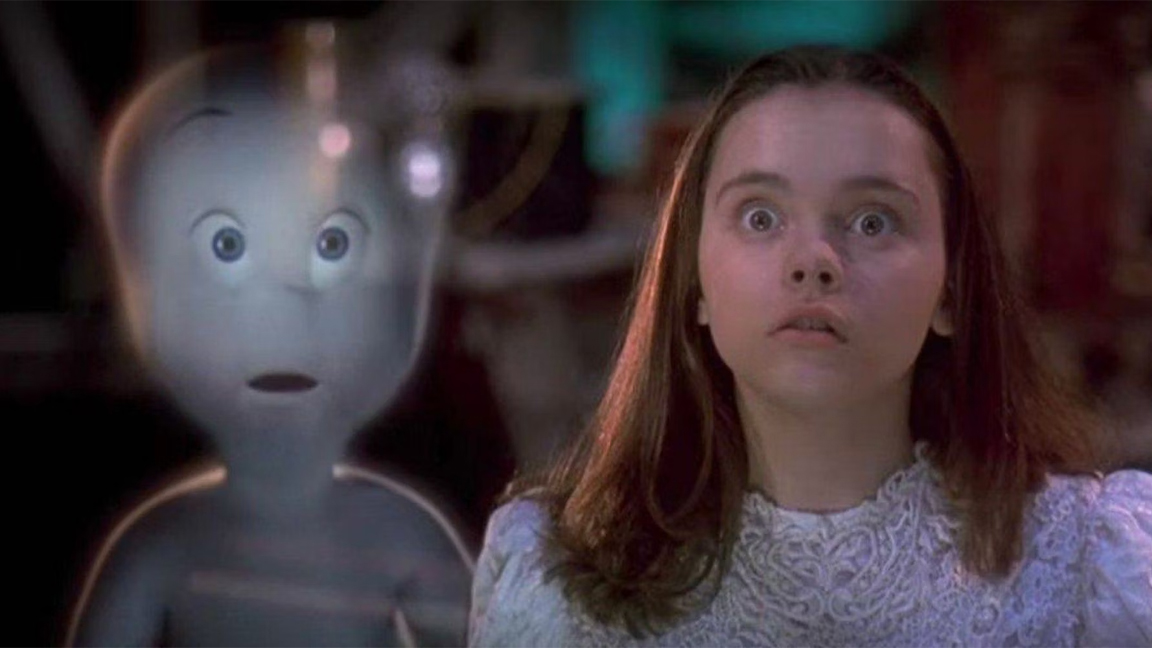
18. Casper
ILM (1995)
Armed only with mid-90s processing power, Casper and his entourage of spooks took a team of 150 people at ILM 15 months to produce, averaging just seven shots a week. Billed as the ‘first digital performer’ Casper takes the lead in a movie that boasts 40 minutes of CG over more than 350 shots – six times the amount featured in Jurassic Park just two years earlier
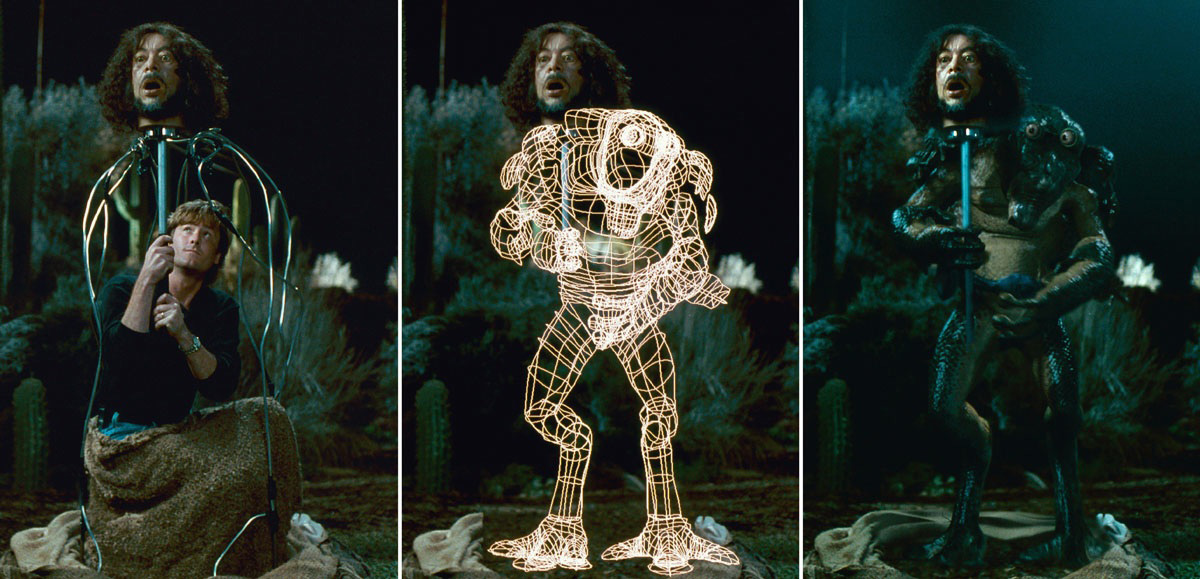
17. Men In Black
ILM (1997)
A range of weird and wonderful creatures feature in the 250-odd VFX shots for this extraterrestrial action blockbuster. Standout moments include the hilarious ‘worm guys’, the lip-synched pug dog, which features an entirely CG-ed lower jaw, and the scene in which Jeebs gets his head blown off, only for another to seamlessly grow back.
ILM’s work in adding the entirely-CG alien Edgar to the final sequence really pushed the art of match-moving, enabling directors to shoot any scene as if it were live and not due for a CG makeover.
16. The Mummy
ILM, Cinesite, Pacific Title (1999)
Stephen Sommers’ horror yarn is full of supernatural effects, from dust storms and swarms of locusts to the eponymous star himself. ILM created an underlying skeleton and muscle system in Maya, with dozens of animatable controls.
For scenes where you see his bones and chest cavity, the creature was layered in texture maps with areas of transparency and chunks of displaced geometry. In later scenes, VFX supervisor John Berton added markers to Arnold Vosloo’s face, so he could painstakingly track in digital prosthetics, showing his jaw and teeth behind the shredded skin.
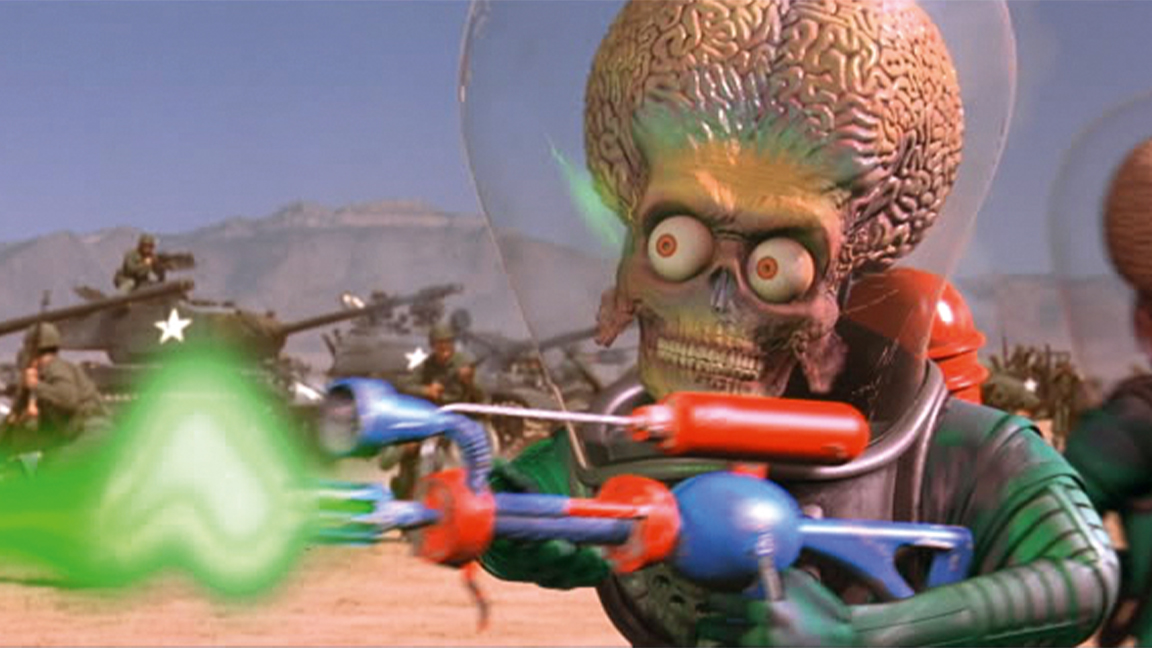
15. Mars Attacks!
ILM, Warner Digital Studios (1996)
Marking Tim Burton’s first major dalliance with CG, Mars Attacks! features over 300 shots from Industrial Light & Magic, then at the height of its dominance over the Hollywood effects industry. From 1950s trading cards to the big screen, the titular Martians represented a leap forward in CG character work. Putting even 15 on screen at once nearly brought ILM’s systems grinding to a halt.
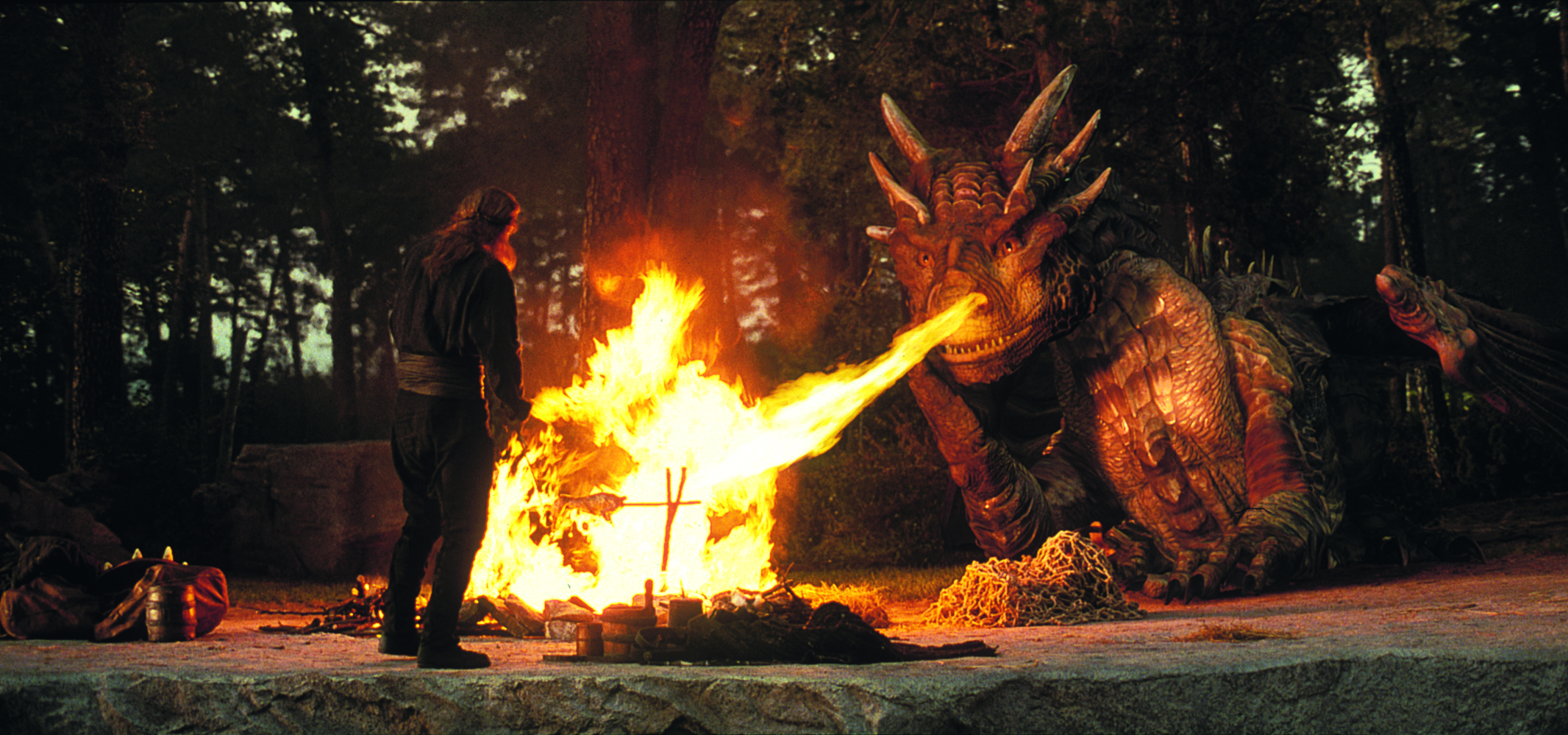
14. Dragonheart
ILM, Tippett Studio, Illusion Arts (1996)
ILM employed its bespoke Caricature lip-synching software to breathe life into Draco, the talking dragon. The big leap forward here was the range of Draco’s facial animation: the voice was provided by Sean Connery and over 200 reference photos were taken of him with different expressions. These were then used to help animate Draco, give him character and enhance his virtual ‘performance’.
With lengthy screen times (up to 30 seconds in some scenes), and Draco being the main focal point in the shot, the CG had to stand up to audience scrutiny, which makes ILM’s work on the film all the more impressive. The facility duly received a Technical Academy Award for its efforts.
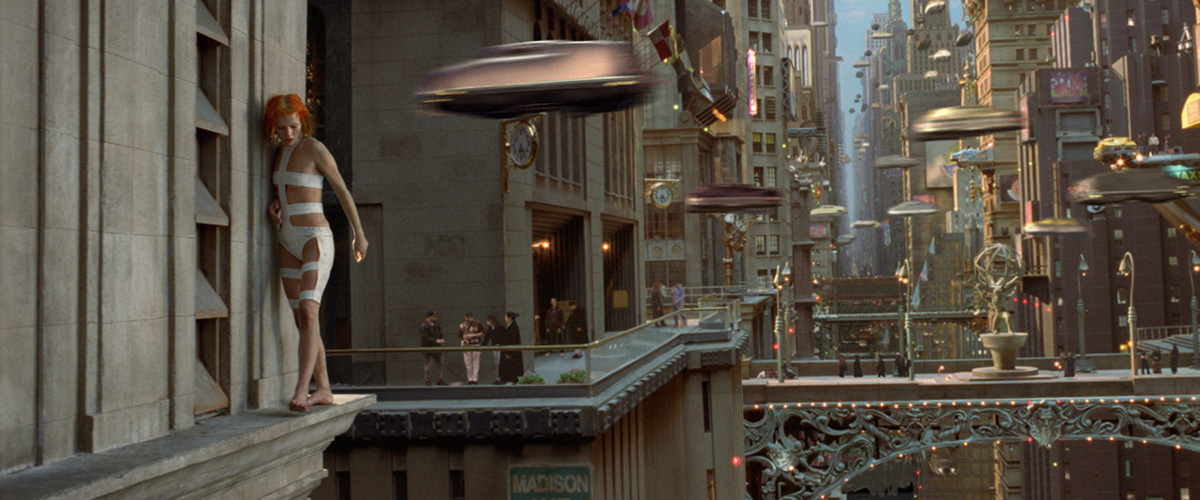
13. The Fifth Element
Digital Domain (1997)
It was overlooked at the Oscars, but this vivid space romp was named one of the Visual Effects Society’s top 50 movies. Director Luc Besson recruited Digital Domain’s 55-man crew to handle some 200 shots, including sequences on 3D sets on board a model of a 2,000-foot interstellar ocean liner, hovering above an all-digital water planet.
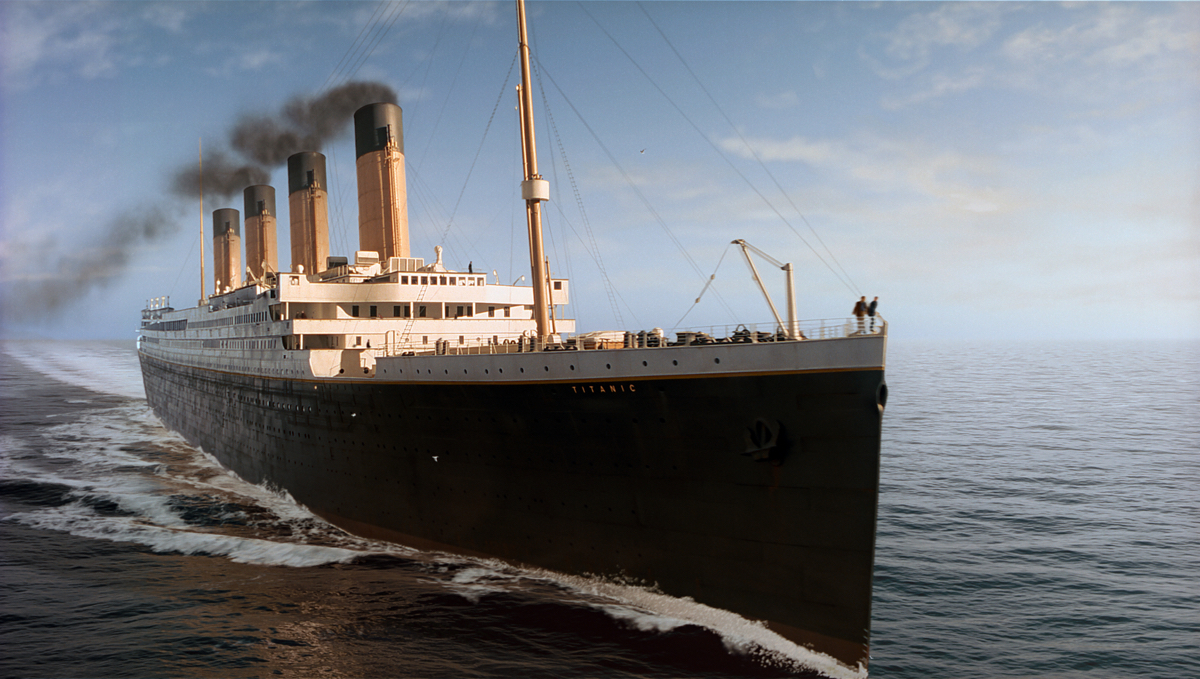
12. Titanic
Digital Domain, ILM (1997)
Crowd simulation comes of age in James Cameron’s weepy disaster flick. Digital Domain’s hundreds of CG actors helped propel this titanic movie to success. For the crowds of digital background characters, the DD team motion-captured a small number of actors going through a variety of interactive movements, forming a library of digital shots for use in any number and scale throughout the film. The movie also features fully CG-rendered ships and photoreal digital seascapes.
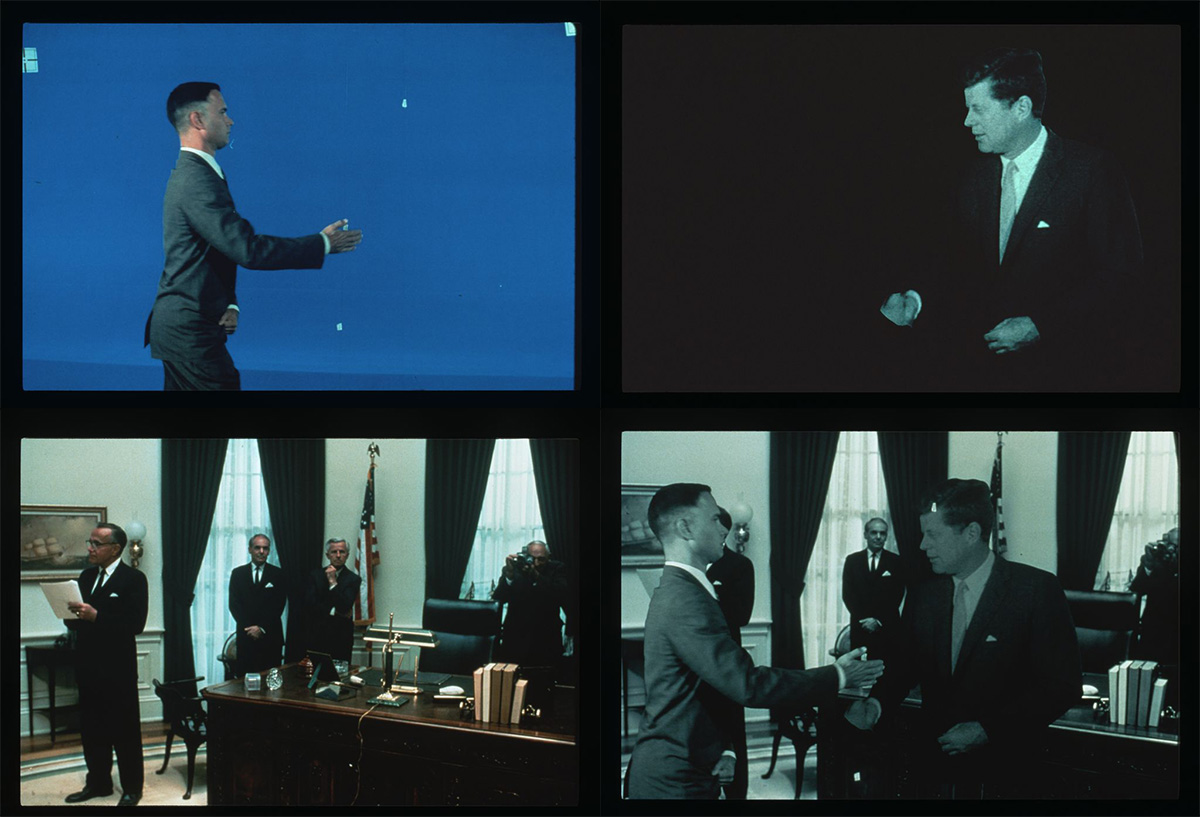
11. Forrest Gump
ILM (1994)
The 3D elements that establish the eponymous hero’s place as an
unwitting participant in the key events of the 20th century are discreet, but nevertheless they are there. From the napalm explosions to the frantic CG ping pong, ILM’s epic journey through the ages has an effects shot for every decade. This film is certainly a real masterclass in using CG to sell a story.
Best CGI movies of the 90s: 10-1
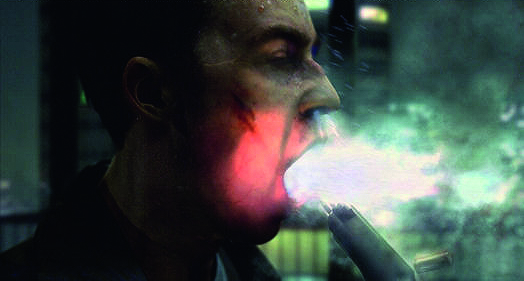
10. Fight Club
Digital Domain, BUF, Pixel Liberation Front (1999)
David Fincher’s film revolutionised the use of photogrammetry and 3D pre-vis in cinema. BUF’s impossible camera sequences created moving 3D animations based on 2D reference photos, with some requiring three-day shoots in order to collect enough material.
One of the film’s earliest sequences is made up of over 100 individual still photographs composited together. It also boasts a full CG zoom from deep within Ed Norton’s brain, past firing synapses and out through a pore in his forehead, following a bead of sweat as it drips down and flows along the barrel of a Smith & Wesson 4506 in his mouth. Digital Domain created the shot at a cost of $800,000.
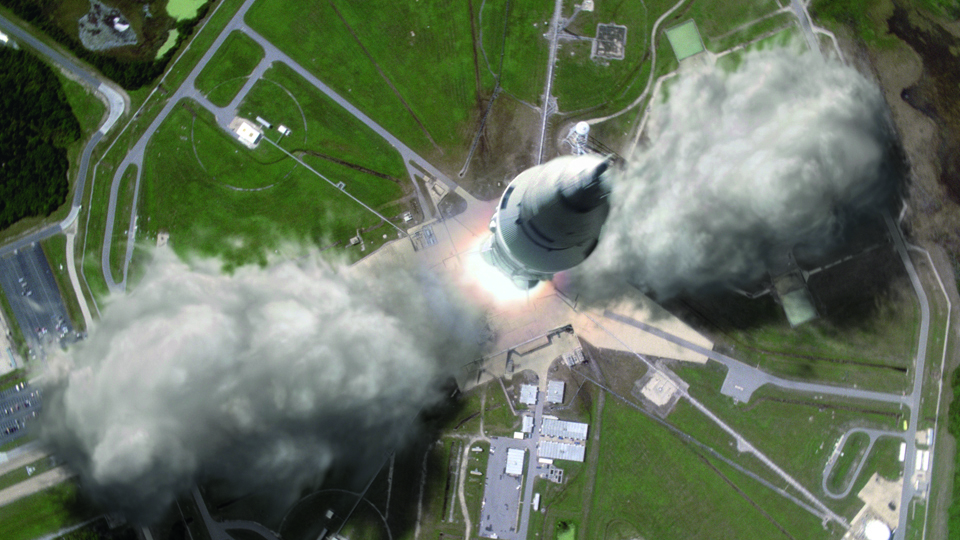
09. Apollo 13
Digital Domain (1995)
Ron Howard’s tense space drama bagged an Oscar nomination for Digital Domain’s slick CG artistry and detailed large-scale modelling techniques. DD’s proprietary tracking technology helped create a series of stunning deep space scenes, plus a Saturn V launch sequence that even NASA astronauts mistook for original televised archive footage.
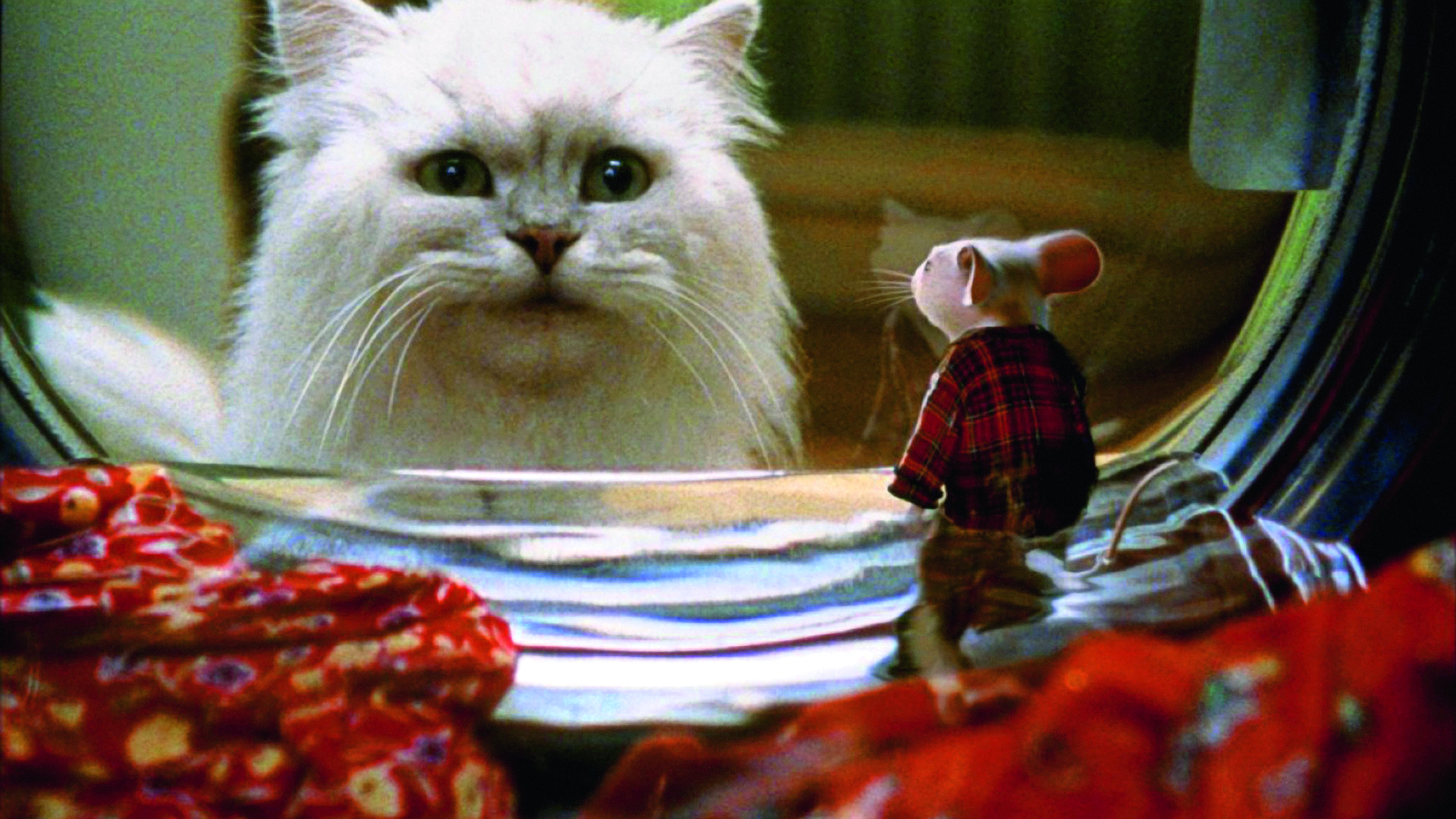
08. Stuart Little
Sony Pictures Imageworks (1999)
This blend of CG animation and live action missed out on an Oscar for Best Visual Effects to The Matrix. There’s still plenty to admire this charming tale of a mouse raised by humans in New York. From large scale water simulations of Stuart’s boat race to a small tear flowing down his fur cheek, this movie pushed CG techniques. A favourite shot is of Stuart cornered inside a water-logged washing machine, details include his wet hand prints on the glass.
07. The Lost World: Jurassic Park
ILM (1997)
Jurassic Park’s sequel upped the ante in tracking and match-lighting, and almost matched its Oscar win. The extensive use of traditional filming movements in the plate photography, such as handheld shots and dolly moves, really showed how to integrate CG elements into dynamic camera work.
06. Independence Day
VisionArt, various (1996)
Independence Day’s massed 3D ships and planes still hold up to scrutiny today. VisionArt and its proprietary particle system/compositor, Sparky, were brought in for the dogfight scenes, but ended up taking on around 85 shots, including the destruction of the alien mothership.
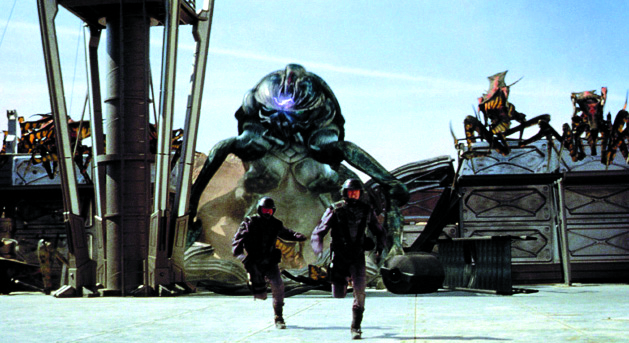
05. Starship Troopers
Sony Pictures Imageworks, ILM, Tippett Studio (1997)
The first movie to feature a large scale CG-enhanced military battle – futuristic soldiers and giant alien insects in this case. By now stop-motion animator Phil Tippet had embraced the art of CG creatures, bringing his knowledge of form and movement to the digital realm. To create diversity in the Whiskey Outpost swarm scenes, Tippett’s artists varied the bugs’ hue, colour and saturation parameters, and mixed between a library of different walk cycles.
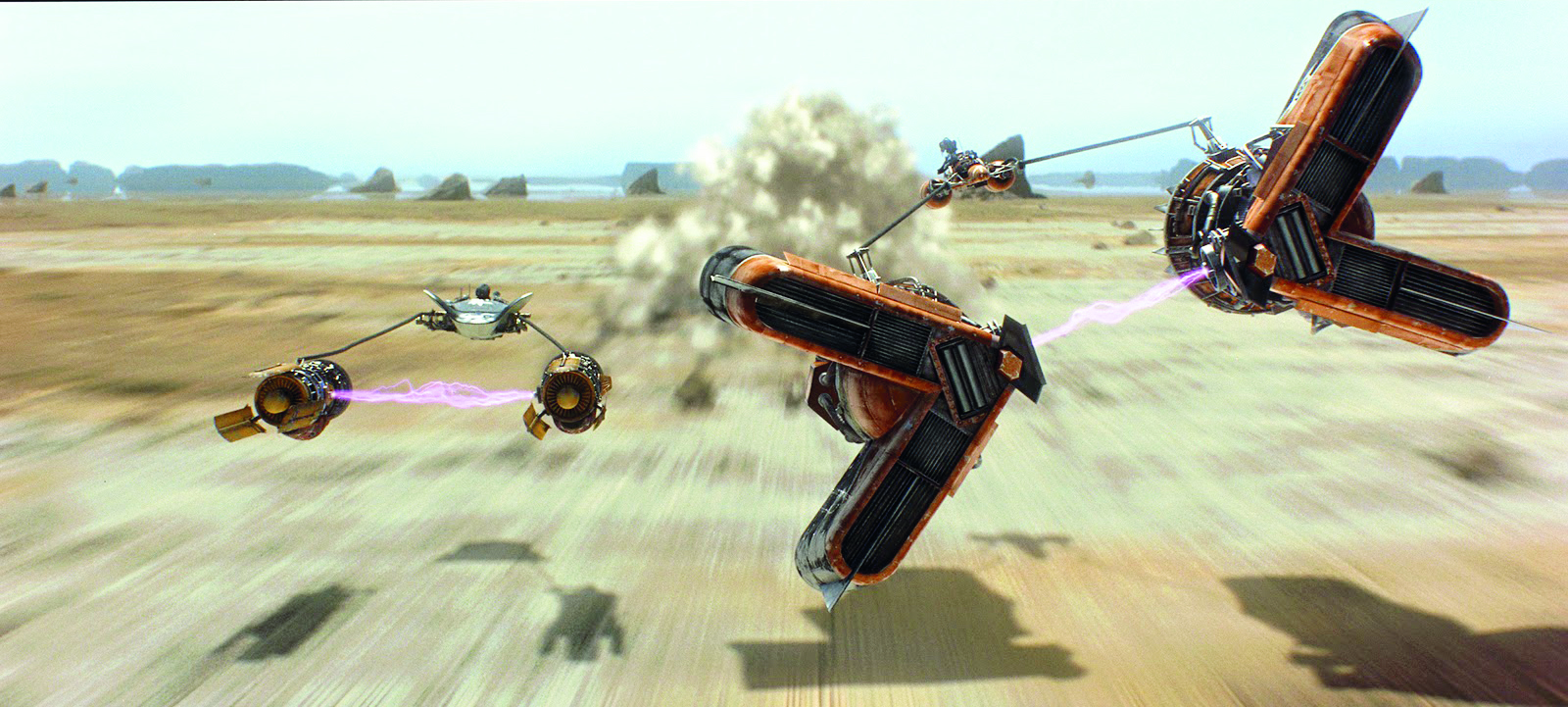
04. Star Wars: The Phantom Menace
ILM (1999)
In November 1996, visual effects supervisor John Knoll – later to receive an Oscar nomination for Star Wars: Episode I – walked into director George Lucas’s offices at his ranch, and came face to face with the storyboards for the film. “There were 3,600 of them, laid out on pieces of 4x8-foot foamcore, in 36 groups of ten columns,” he says. “Prior to Episode I, our biggest show was 400 or 500 shots, Episode 1 had 2,000.”
Although many modern blockbusters have upwards of 1,500 shots, when ILM started on Episode I, no-one had attempted anything of that scale. The Phantom Menace was, at the time, the biggest visual effects project ever undertaken. 95 per cent of the frames have digital elements, and it features 66 different digital characters, including the first all-CG lead character (Jar-Jar Binks).
The 320-shot Pod race, which takes place on the barren landscape of Tatooine, required that ILM spend a year in R&D, working on physics systems for the destruction of the Podracers, plus an Adaptive Terrain Generator, employing a level-of-detail system, just so that its computers could hold the mesh data in memory. Whether you like it or not, Episode I fundamentally changed the way movies were made – pretty much as Episode IV did back in 1977.
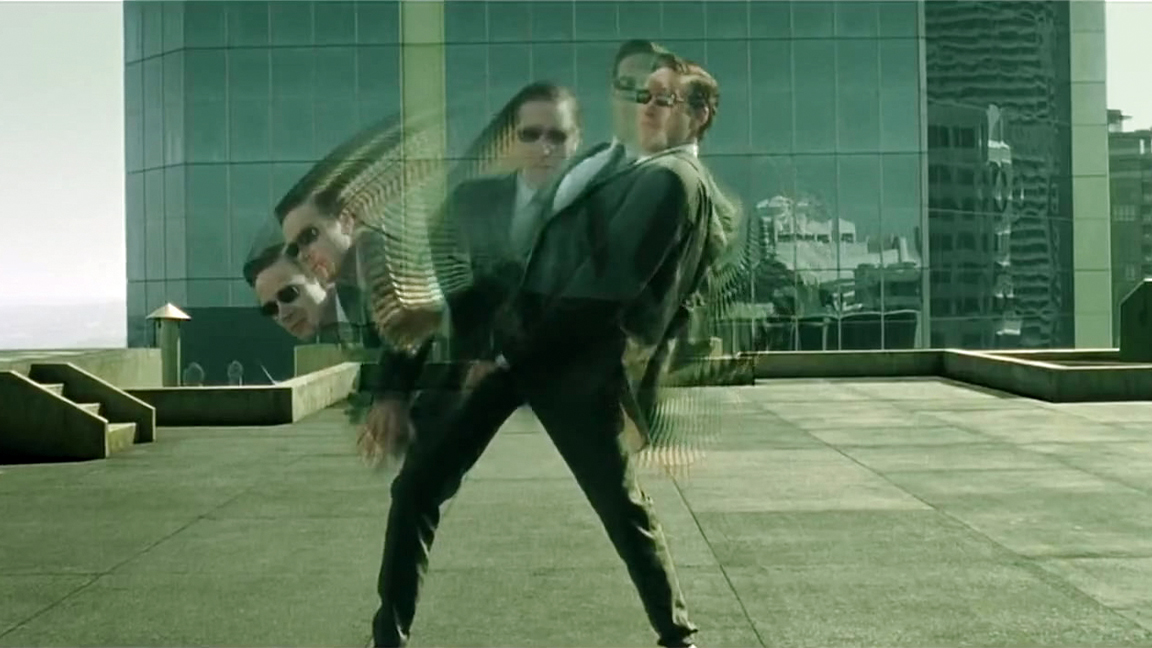
03. The Matrix
Manex Visual Effects, Animal Logic, DFilm Services, various (1999)
Released in spring 1999, The Matrix was the surprise science fiction hit that beat The Phantom Menace to the finish line in the race for the Academy Award for Visual Effects.
The Matrix launched the career of first-time visual effects supervisor John Gaeta, then just 34, and goes down in history as the film that raised the bar for the choreography of fight sequences and reinvented cinematography. Its most iconic scene is a frozen moment that has become known as ‘bullet time’, in which Neo (Keanu Reeves) dodges bullets fired at him by an agent, while the camera circles around. The sequence still captivates today.
Gaeta’s team trained a circular array of 122 still cameras on Keanu Reeves, then triggered them in sequence. Because cameras located on one side of Reeves were visible to those on the other, Gaeta needed a way of generating photorealistic sets so the camera could be removed from frame.
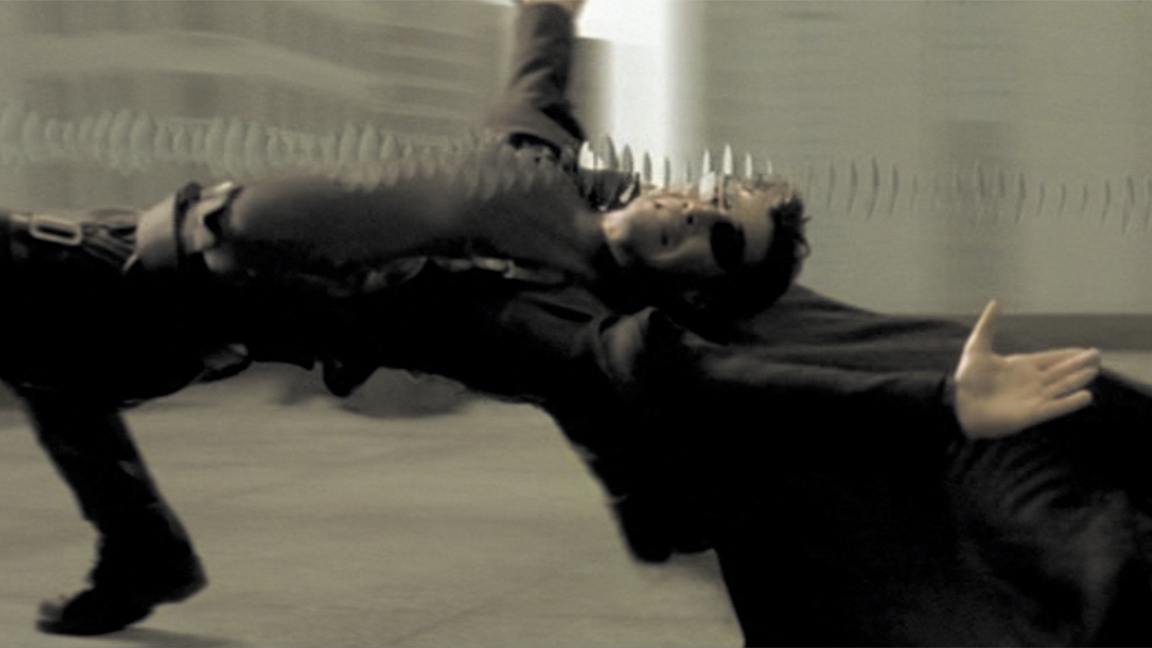
Gaeta and Manex VFX supervisor Kim Libreri found the answer at Siggraph 1997 in ‘The Campanile Movie’, a short film by Paul Debevec, George Borshukov and Yizhou Yu. Photographs of buildings were reprojected onto their CG models using new, best-fit algorithms. The result was the birth of virtual cinematography.
“All my friends who worked on the film were enablers who allowed us to take risks,” remembers Gaeta. “That was very important to me at that time, and gave me confidence in everything else I’ve done since. The Wachowskis give their designers quite a bit of creative freedom, and they really engaged, encouraged and inspired.”
Reflecting on the film in 2007, Gaeta noted that there were many shots he’d still like to tweak. “There are a lot of shots that, in the light of what you can do today, are pretty crude. But they still represent ideas the filmmakers were trying to represent.” To judge from The Matrix’s placement in the poll, they’re ideas that endure to this day.
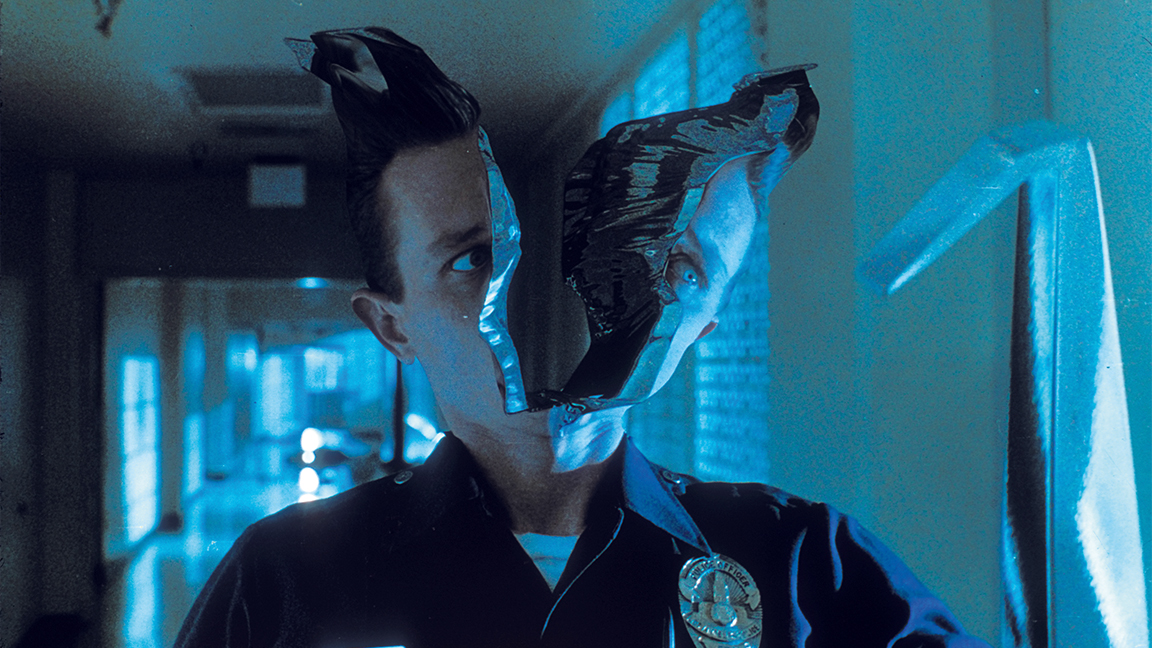
02. Terminator 2: Judgement Day
ILM, Video Image, Pacific Data Images (1991)
“I think Terminator 2 was more groundbreaking than Jurassic Park,” says Dennis Muren, visual effects supervisor on – and VFX Oscar winner for – the classic sci-fi movie. “We had to put a lot of things in place for Terminator 2: complex rendering, compositing, and so on. But no one saw it until Jurassic Park.”
After finishing work on the The Abyss in 1989, Muren took a year off. During that time, he read a 1,200-page book on CG. “I couldn’t figure out how it worked, but I wasn’t afraid of it,” he says. “I could tell Jim [director James Cameron], ‘Yep, we can do this.’ ”
The ‘this’ in question was the T-1000, Terminator 2’s iconic liquid metal cyborg. Compositing it with correct reflection maps to anchor it in the frame was difficult. “We had background plates and that environment needed to reflect in the character,” says Muren.
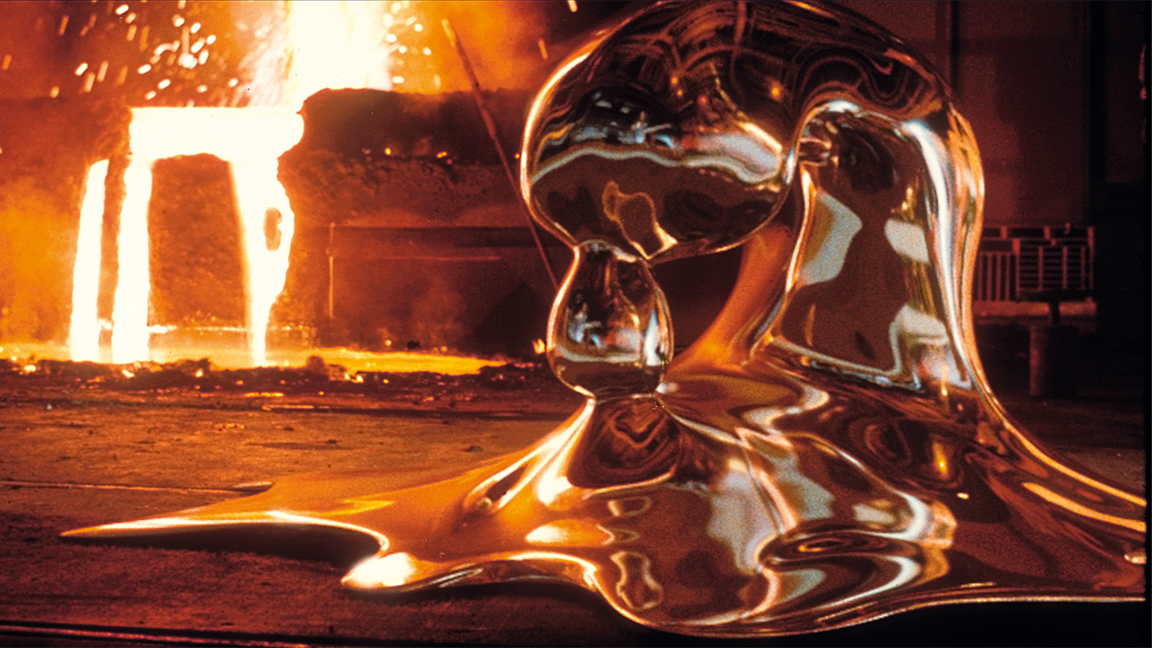
“The distortions had to remain consistent without creating big tears in the maps.” Another challenge was animation: when the T-1000 adopted actor Robert Patrick’s form, animators moved it like a person. When it was liquid, animators moved the fluid. “We figured out as much as we could to keep the geometry from tearing,” says Muren. “But we had an early copy of Photoshop, so if something didn’t work [art director] Doug Chiang would go in and paint the frame.”
T2’s biggest innovation, however, may have been that for the first time, the effects process was fully digital. “We had a film recorder that actually worked,” Muren says. “We had a scanner that we had worked on with Kodak. So with the scanner, film recorder and our copy of Photoshop, we completed the triangle. It was the first time we could do digital in, digital manipulation and digital out.”
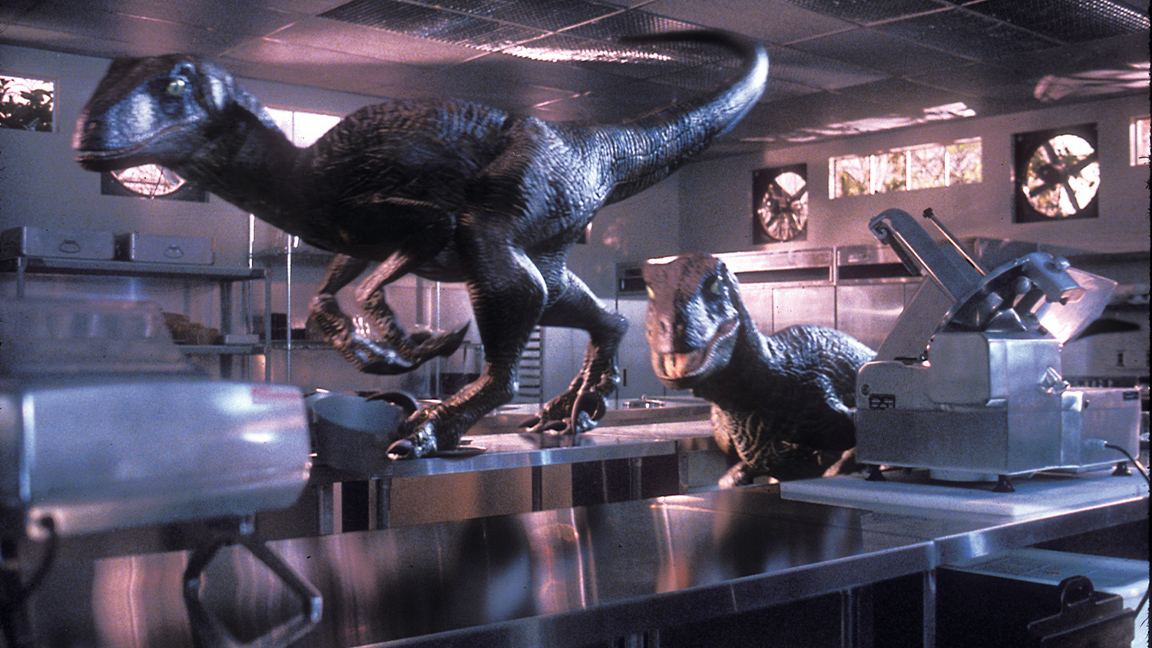
01. Jurassic Park
ILM, Tippett Studio (1993)
Why is Jurassic Park remembered so fondly for its visual effects? No-one knows the answer to that question better than Dennis Muren at Industrial Light & Magic, who won one of his eight visual effects Oscars for the film. “It was the first time we had been able to put living, breathing synthetic animals in a live-action movie,” says Muren. “No-one had seen anything like it. The reality hadn’t been done before; the naturalism.”
Muren credits dinosaur supervisor Phil Tippett and, of course, director Steven Spielberg for pushing the unsafe documentary film style. “We wanted the animals to create the feeling that we wouldn’t know what was going to happen next,” Muren says.
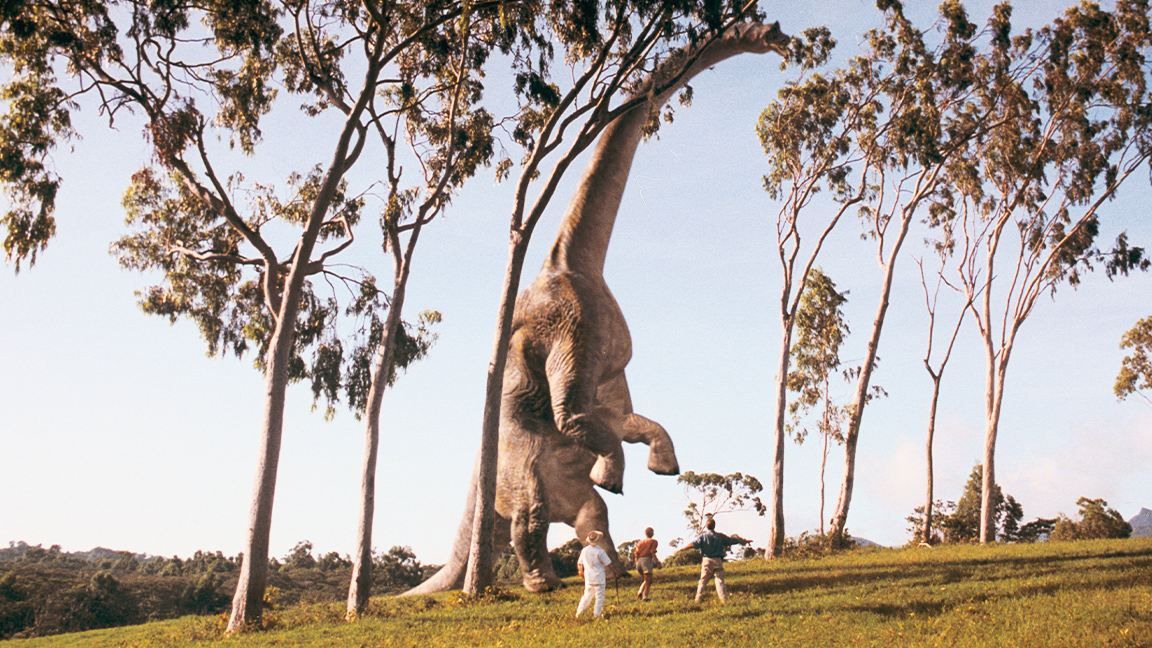
Because creating CG animals was so new, Muren set up two systems: stop motion and CG. “The animators hadn’t worked on real animals,” he says. “No-one had.” Even though the CG animals soon proved themselves, Stan Winston’s puppets starred in close-ups in most of the film. “When we started, I didn’t think we could do anything closer than a full-length dinosaur in CG. But we pushed closer and closer. Near the end of the film, in the rotunda sequence when the T. rex walks in and the raptor jumps on its back, I was confident enough to try close-ups.”
ILM’s 56 CG shots and 6.5 minutes of screen time also included a digi-double for the lawyer (actor Martin Ferrero) as the T. rex snags him out of a bathroom, and a face replacement for a character who falls through the floorboards during a raptor attack. Muren recalls: “George [Lucas] came by occasionally, and one time said, ‘This looks pretty good.’ I said: ‘Yeah, I’m hoping we can do something like 2001, something brand new.’ He said: ‘You guys are doing it and you don’t know it.’ It wasn’t until it was over that I realised he was probably right.”







